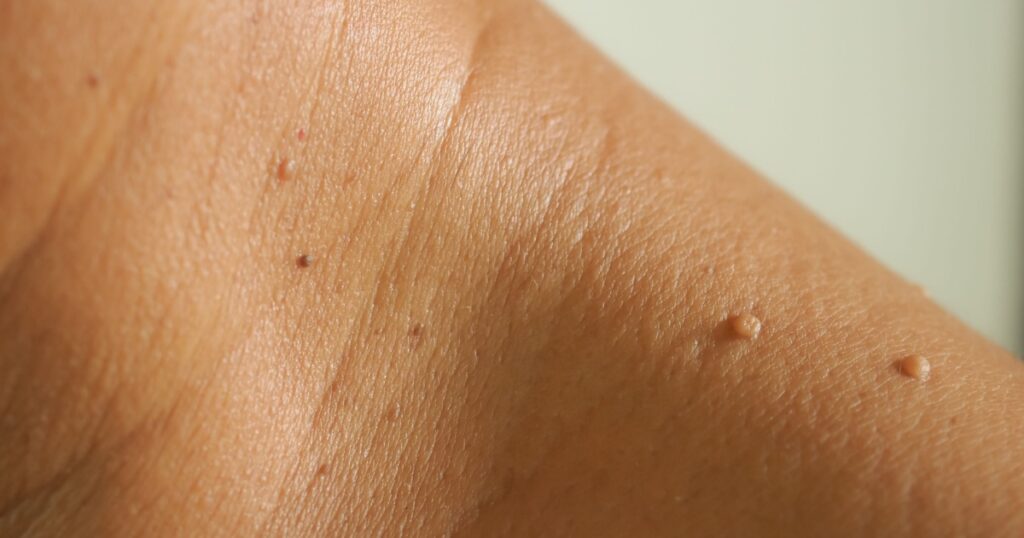Apple cider vinegar (ACV) is a vinegar derived from apple juice. It is also an extremely popular home remedy. Despite all of its hype, people often exaggerate its benefits with little to no scientific backing. However, research has proven it contains certain benefits but can also cause unwanted side effects. Fortunately, there are ways to consume it safely, but first, let’s separate fact from fiction.
Reduces High Blood Pressure

One myth about ACV claims it can control blood pressure. This is based on a small animal study, but no larger studies involving people existed. As a result, there is not enough data to support the claim that ACV can work as blood pressure medication.
Read More: Why Are Bragg’s Apple Cider Vinegar Customers Unhappy With Katy Perry?
Cancer

Many popular natural remedies are touted as cancer cures, and apple cider vinegar is no different. A few cell studies have indicated that vinegar and acetic acid can damage cancer cells. However, there’s no way to replicate this study in humans because pouring ACV directly onto internal tumors is impossible. Therefore, there’s no practical way to use ACV as a cancer treatment. [1]
Removing moles and pimples

ACV has been claimed to remove moles and pimples, but this is inadvisable. Moles may disappear after multiple applications, but they can leave behind skin pigmentation and scarring. The vinegar can also cause burns and damage the skin. [2]
Overall, there is limited research on ACV. Despite its popularity, many of the claims are based on small studies or animal studies. More research needs to understand its effects and how best to use it as medical treatment.
Evidence Backed Benefits of ACV

Making apple cider vinegar involves fermenting crushed apples with yeast and bacteria, producing acetic acid, the prime active ingredient in vinegar. Researchers theorize it is also the source of ACV’s health benefits. Although it doesn’t contain many minerals or vitamins, ACV has small amounts of potassium, and high-quality brands may include antioxidants and certain amino acids. Vinegar is a natural cleaner and disinfectant since it can help kill pathogens. It also preserves food by inhibiting the growth of bacteria. Additionally, ACV may have small beneficial effects in two areas: blood sugar regulation and weight loss.
Read More: Do Apple Cider Vinegar Baths Help Eczema?
Blood Sugar Regulation

One of the most unique and researched uses for vinegar is lowering blood sugar levels, especially for those with type 2 diabetes. Diabetes is characterized by insulin resistance or the inability to make insulin, which leads to high blood sugar levels. Multiple small studies showed that vinegar has the power to lower blood sugar and improve insulin function. However, there’s not enough information to make ACV a viable treatment to lower blood sugar levels, and it does not replace medications for type 2 diabetes.
Weight Loss

Another potential benefit of ACV is weight loss. Several human studies showed that vinegar can cause people to feel more satiated after meals, which can lead to eating less (consuming less calories). However, ACV has more of an indirect effect here by helping someone reduce their calorie intake. ACV does nothing to directly reduce body weight. Long-term weight loss is most effective when it involves healthy lifestyle habits, a supportive diet, and, most importantly, a calorie deficit. [3]
Side Effects of ACV

- Tooth decay – Acidic foods and beverages such as apple cider vinegar can slowly weaken tooth enamel. This heightens the risk of tooth decay and cavities. Signs of damaged tooth enamel include sensitivity to sweet foods as well as cold or hot foods. Regularly consuming undiluted ACV presents the highest risk of tooth decay so it’s advisable to consume it diluted or part of a meal.
- Low potassium – ACV is linked to low potassium levels, also known as hypokalemia. Mild hypokalemia does not always cause symptoms but moderate or severe cases can cause muscle weakness or paralysis.
- Blood sugar reduction – People with diabetes should discuss apple cider vinegar with a medical professional before consuming it. Although research shows that vinegar can affect blood sugar levels, more studies must examine how this effect works.
- Digestive issues – Research indicates that ACV may help people feel full for longer by keeping the food in the stomach, which can lead to weight loss. However, retaining food can lead to nausea and indigestion. Additionally, undiluted ACV can worsen symptoms for those with acid reflux, stomach ulcers, and other digestive problems.
- Skin burns – ACV, especially when undiluted, can cause irritation and burns when used on the skin.
To avoid these unwanted effects, avoid consuming large quantities of undiluted vinegar and keeping it on the skin for extended periods of time. Instead, dilute the vinegar with water, drink it with a straw, or add it to foods like salad dressing and homemade mayonnaise. You can also dry by adding a small amount (i.e., 2 tbsp) to a larger amount of water (i.e., 1L). Until more research understands the long-term effects of apple cider vinegar, it’s advisable to consume it in moderation, about 10–30 millimeters (one or two teaspoons) a day. People with hypokalemia, diabetes, and digestive problems should speak with their doctors before consuming it. [4]
Read More: 5 Ways Apple Cider Vinegar Can Be Beneficial to Your Hair
Sources
- “Debunking the health benefits of apple cider vinegar.” U Chicago Medicine. Edwin McDonald IV, MD. August 23, 2018
- “Does apple cider vinegar have any proven health benefits?” Harvard Health Publishing. February 7, 2021
- “6 Health Benefits of Apple Cider Vinegar, Backed by Science.” Healthline. Kris Gunnars, BSc. April 8, 2021
- “Side effects of apple cider vinegar.” Medical News Today. Timothy Huzar. January 15, 2019

